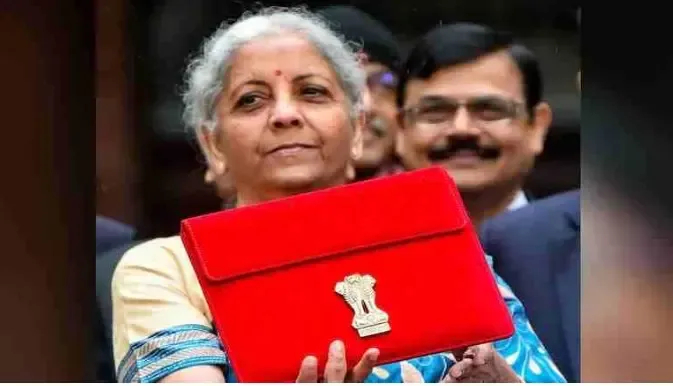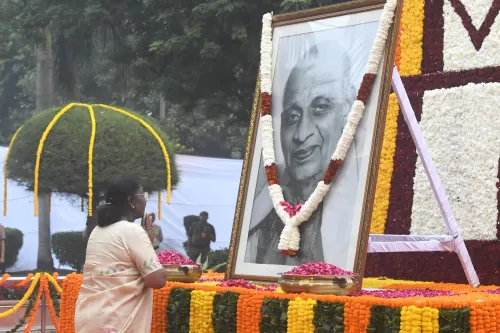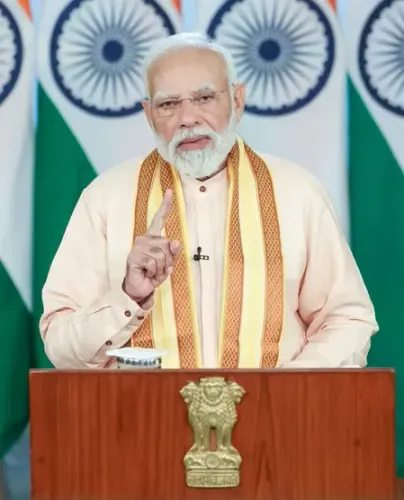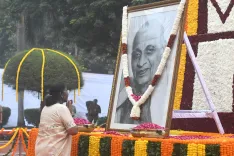Waqf Amendment Act Among 16 Bills Scheduled for Introduction in Today's Budget Session

Synopsis
Key Takeaways
- 16 Bills to be introduced in Budget session.
- Waqf Amendment Bill proposes significant changes.
- Finance Bill to introduce a new tax code.
- Updates on maritime laws and oil regulations.
- Focus on scheduled tribes representation in Goa.
New Delhi, Jan 31 (NationPress) A total of sixteen Bills, including the Finance Bill 2025, amendments to the Waqf and Banking Regulations Act, and proposals to merge the Indian Railways and Indian Railways Board Acts, are set to be introduced during the Budget session in Parliament, commencing this Friday with the Economic Survey 2024/25.
Among the additional Bills anticipated in this session are revisions to the Disaster Management and Oilfields (Regulation and Development) laws. Proposed legislation addressing coastal and merchant shipping and another seeking to rename the Institute of Rural Management Anand to Tribhuvan Sahkari University, designating it as 'an institution of national importance', may also be presented.
Moreover, Bills aimed at protecting financial interests in the aviation sector and modifying existing regulations concerning immigration and foreign entry are expected to be discussed.
A significant bill anticipated is the Readjustment of Representation of Scheduled Tribes (ST) in the Assembly Constituencies of Goa. This measure aims to redistribute Assembly seats in Goa to better reflect its Scheduled Tribe populations.
This session will see Finance Minister Nirmala Sitharaman present her eighth Union Budget, just two behind the record of ten held by Morarji Desai, with key focus on the Waqf (Amendment) and Finance Bills.
Waqf (Amendment) Bill
The bill proposing 44 changes to Waqf laws, which govern the management of Muslim charitable properties in India, was introduced in Parliament last August.
This contentious bill sparked intense protests from the Opposition as soon as it was presented and was subsequently referred to a joint committee led by BJP MP Jagadambika Pal. The JPC conducted nearly three dozen meetings but experienced chaos and protests from opposition members, who claimed their concerns were overlooked. This week, the committee released its report.
The report included 14 recommendations, all from the ruling BJP or its allies, while dismissing 44 suggestions made by opposition MPs, further escalating tensions between the two sides.
The recommendations, along with the Bill, are expected to be addressed in this session.
Finance Bill
The Finance Bill is crucial for several reasons, primarily the proposed introduction of a new direct tax code aimed at a comprehensive revision of the existing Income Tax Act of 1961.
This new code is anticipated to simplify income tax laws, making them more accessible for taxpayers to understand, calculate dues, and file returns.
Even without this overhaul, the Finance Bill will still encompass numerous significant reforms and will play a central role in the Central government’s execution of all budgetary proposals put forth by Finance Minister Nirmala Sitharaman.
Additionally, the bill will include amendments to banking laws intended to enhance governance within the banking sector and improve consumer convenience regarding nominations and investor protections.
Other Bills
Legislation concerning maritime laws will receive updates, with the Bills of Lading Bill, Carriage of Goods by Sea Bill, Coastal Shipping Bill, and the Merchant Shipping Bill, 2024, aiming to modernize shipping regulations.
The Oilfields Amendment Bill will propose revisions to the laws governing oil exploration and extraction, while the Boilers Bill will introduce new safety standards for industrial boilers.
Another significant legislative proposal is the Disaster Management (Amendment) Bill, which will delegate the responsibility for developing disaster plans to both Central and state-level forces, ensuring an updated database for both entities to facilitate a quicker and more effective response.









